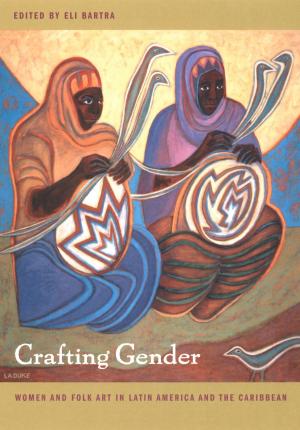Slavery Unseen
Sex, Power, and Violence in Brazilian History
Nonfiction, History, Americas, South America, Social & Cultural Studies, Social Science, Discrimination & Race Relations| Author: | Lamonte Aidoo | ISBN: | 9780822371687 |
| Publisher: | Duke University Press | Publication: | March 15, 2018 |
| Imprint: | Duke University Press Books | Language: | English |
| Author: | Lamonte Aidoo |
| ISBN: | 9780822371687 |
| Publisher: | Duke University Press |
| Publication: | March 15, 2018 |
| Imprint: | Duke University Press Books |
| Language: | English |
In Slavery Unseen, Lamonte Aidoo upends the narrative of Brazil as a racial democracy, showing how the myth of racial democracy elides the history of sexual violence, patriarchal terror, and exploitation of slaves. Drawing on sources ranging from inquisition trial documents to travel accounts and literature, Aidoo demonstrates how interracial and same-sex sexual violence operated as a key mechanism of the production and perpetuation of slavery as well as racial and gender inequality. The myth of racial democracy, Aidoo contends, does not stem from or reflect racial progress; rather, it is an antiblack apparatus that upholds and protects the heteronormative white patriarchy throughout Brazil's past and on into the present.
In Slavery Unseen, Lamonte Aidoo upends the narrative of Brazil as a racial democracy, showing how the myth of racial democracy elides the history of sexual violence, patriarchal terror, and exploitation of slaves. Drawing on sources ranging from inquisition trial documents to travel accounts and literature, Aidoo demonstrates how interracial and same-sex sexual violence operated as a key mechanism of the production and perpetuation of slavery as well as racial and gender inequality. The myth of racial democracy, Aidoo contends, does not stem from or reflect racial progress; rather, it is an antiblack apparatus that upholds and protects the heteronormative white patriarchy throughout Brazil's past and on into the present.















